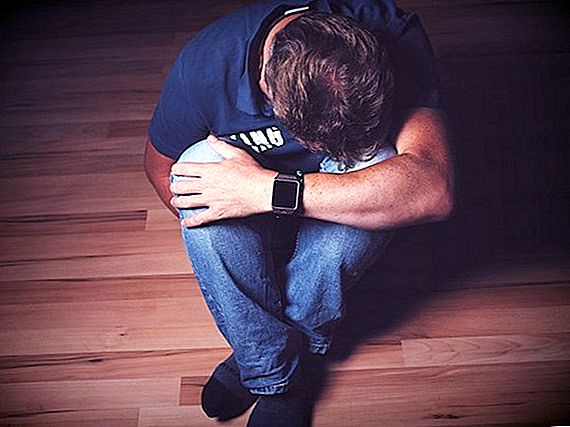Why does a person have a headache? In some cases, a headache is a symptom of an organic disorder, but often this pain is a psychosomatic condition. What causes a headache in the framework of psychosomatics, what provokes it? Having understood the reason, you can find ways to get rid of the psychosomatic headache.

Headache as a self-punishment
If a person experiences an acute sense of guilt, not always conscious and accepted, it will begin to manifest itself through pain. In this embodiment, a headache is a conditional self-punishment for some misconduct. Often these misconduct are far-fetched, fictional, imposed from the outside. Feelings of guilt can last from childhood or form in the context of any current situation.
Self-incrimination and, as a result, self-punishment through a headache is often characteristic of people with hypertrophic responsibility. Such individuals try to take themselves more than they can bear. Moreover, they can unknowingly “take” guilt and shame from other people. Very often, such people feel a sense of awkwardness, shame, discomfort, when someone else - sometimes a complete stranger to a stranger - commits an offense. Unpleasant sensations can arise in a person even when he becomes a witness to a situation in which other people behave differently than the person himself could have expected from them or as if he himself had acted in the context of events. For example, such people often feel guilty and ashamed, awkward when they watch videos where strangers put themselves in a negative light or laugh at themselves. People who have a very strong framework of rules of conduct that are very serious even about small things are prone to psychosomatic headaches.
A headache in the self-punishment format is typical for people with perfectionism. Unable to do anything perfectly, such a person begins to "bite" himself, to blame himself specifically for failures, thereby provoking headache attacks. For altruists, people with high self-esteem and increased demands on themselves, the world can often have a headache without specific organic reasons.
Headache as protection against other pain
Some thoughts, memories or not released feelings can cause attacks of severe headache. In this embodiment, physical pain arises as a protection against emotional pain, from negative experiences.
A person can have a headache within the framework of psychosomatic reasons in a situation when a large amount of auto-aggression (aggression directed at oneself) has accumulated inside the person. So that a person does not harm himself under the influence of such an acute feeling, the psyche builds a barrier in the form of a headache, translating the attention vector onto the head.
Headache as a refuge
Departure or escape into the disease is a typical situation for the development of psychosomatics. Such actions are performed by so many people, as if trying to escape from themselves. A headache as a shelter is formed when a person does not want or is not ready to solve some problems, make certain decisions, take any steps, and struggle with some problems.
Excessive thought flow can cause headaches. When a person tries to think about a lot of things at once, when thoughts, along with emotions, besiege on all sides, at some point even the strongest and most persistent psyche “breaks”. Then the head begins to hurt, it would seem, for no good reason.
A headache can serve as a refuge for parents who are very tired of the vagaries or increased activity of the child and want to "hide" from it. In childhood, a psychosomatic headache can be a "salvation" from going to school or kindergarten, from a situation where the child is told that he is an adult and must make decisions or be responsible for his actions. However, strong attacks of a psychosomatic headache in a child can also be a signal that the little man does not have enough attention and care, that the child is tired of tension and conflicts in the family, etc.
